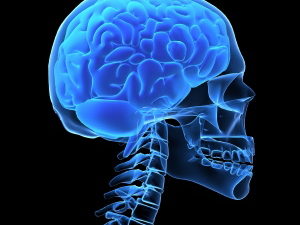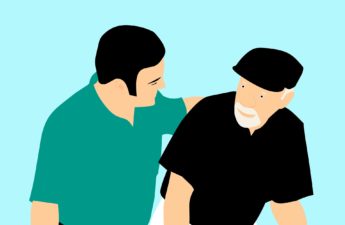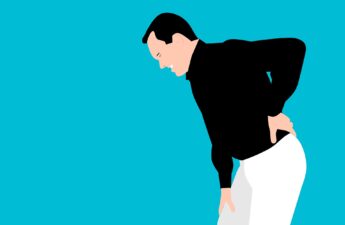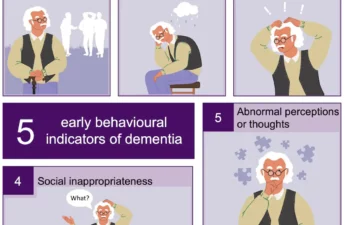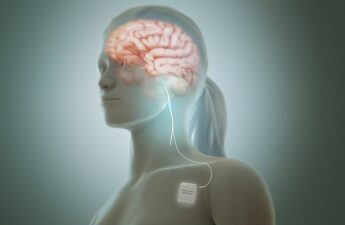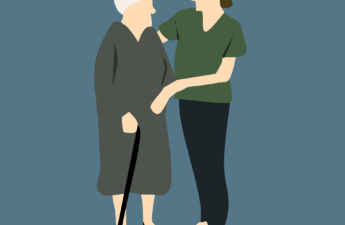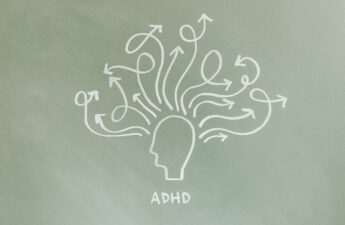Category: Brain and Nervous System
The autistic brain is different. It comes with limitations, but it also has its strengths.
Several companies are testing brain implants – why is there so much attention swirling around Neuralink? Two professors unpack the ethical issues
Putting a computer inside someone’s brain used to feel like the edge of science fiction. Today, it’s a reality. Academic and commercial groups are testing “brain-computer interface” devices to enable people with disabilities to function more independently. Two two scholars at the University of Washington School of Medicine – Nancy Jecker, a bioethicst, and Andrew Ko, a neurosurgeon who implants brain chip devices – discuss the ethics of this new horizon in neuroscience.
More than a third of people with dementia don’t know they have it – what to do if you suspect your partner has the condition
Dementia can present very differently in each person, so it’s about knowing what’s normal for your loved one. A person who has always been conscientious and organised starting to unravel is very different from a scatterbrained person just being slightly more scatterbrained.
Lifestyle changes can reduce dementia risk by maintaining brain plasticity — but the time to act is now
There are several new drugs making their way to the market for Alzheimer’s disease (one of the most common forms of dementia). However, they are still far from a cure and are currently only effective for early-stage Alzheimer’s patients. So lifestyle changes may be our best hope of delaying dementia or not developing dementia at all.
Meditation Is Big Business. The Science Isn’t So Clear.
For more than two decades, various studies have suggested that meditation and mindfulness — that is, being aware of the present moment — can help reduce and improve pain management, lending some credence to the notion that the brain can affect the body. Such results have helped the field grow into a multibillion-dollar industry, populated by meditation apps, guided workshops, and upscale retreats.
Yet the field has also faced sharp criticism from psychologists and researchers who say the health benefits are overstated and some of the research methodologically flawed.
Most people with chronic back pain naturally think their pain is caused by injuries or other problems in the body such as arthritis or bulging disks. But our research team has found that thinking about the root cause of pain as a process that’s occurring in the brain can help promote recovery.
How do stimulants actually work to reduce ADHD symptoms?
Stimulant drugs are thought to alter the activity of key neuotransmitters, dopamine and noradrenaline, in the brain. These neurotransmitters help with attention and focus, among other things.
Early indicators of dementia: 5 behaviour changes to look for after age 50
Five signs to look for: Apathy, affective dysregulation, lack of impulse control, social inappropriateness, and abnormal perceptions or thought.
Monitoring brainwaves to track how patients with depression respond the treatment
Depression recovery can be hard to measure − new research on deep brain stimulation shows how objective biomarkers could help make treatment more precise Christopher Rozell, Georgia Institute of Technology and Sankaraleengam Alagapan, Georgia Institute of Technology It can be challenging…
Our vagus nerves help us rest, digest and restore. Can you really reset them to feel better?
On social media and in wellbeing circles, people have been talking about the vagus nerve a lot. In fact, we have two vagus nerves – a left and a right – and their optimal functioning is essential for good physical and mental health.
Many social media posts describe ways to reset the vagus nerves to reduce stress and increase calm. These mostly focus on yoga, meditation, deep breathing and cold plunges.
But the vagus nerves also play a part in why socialising, sex and sports are good for our health and wellbeing.
Aging with a healthy brain: How lifestyle changes could help prevent up to 40% of dementia cases
By adopting positive lifestyle habits, we could theoretically prevent about 40 per cent of dementias. While there is no guarantee of warding off cognitive decline, people can greatly reduce their risk of dementia by increasing their physical activity levels, ensuring they are mentally active and increasing social contact, while avoiding smoking and limiting alcohol consumption.
Women get far more migraines than men – a neurologist explains why, and what brings relief
More than three times as many women as compared to men get migraines, and women’s migraines are more frequent, more disabling and longer-lasting than men’s.
More adults than ever have been seeking ADHD medications – an ADHD expert explains what could be driving the trend
The average person has a couple of symptoms of ADHD, so it can be hard to draw the line between ADHD-like tendencies – such as a tendency to lose keys, having a messy desk or often finding your mind wandering during a dull task – and a diagnosable medical disorder.
Migraine: A common headache disorder that is underdiagnosed and undertreated
Melina Albanese, University of Toronto Migraine is a common chronic health condition and a leading cause of disability globally. However, even in Canada, with a universal health-care system, migraine is underdiagnosed and undertreated. This is an important public health issue…
Dementia linked to repetitive brain trauma diagnosed in a female athlete for first time
Chronic traumatic encephalopathy (CTE) is a devastating form of dementia which causes a decline in brain functioning and increased risk of mental illness. It is increasingly associated with athletes who play contact sports, such as football, boxing and martial arts.
